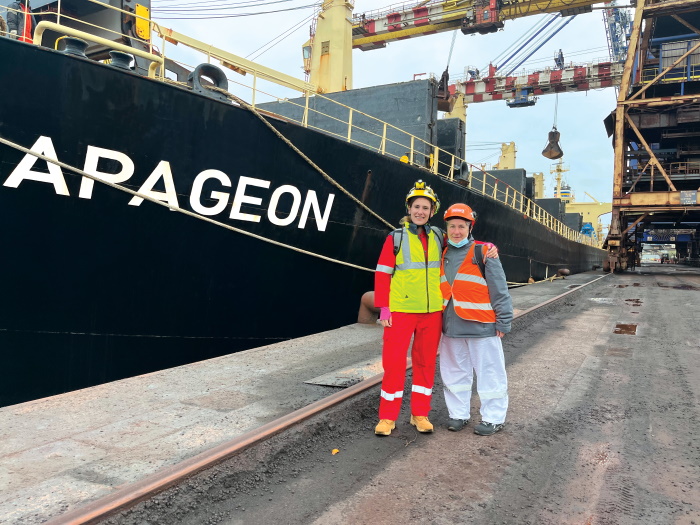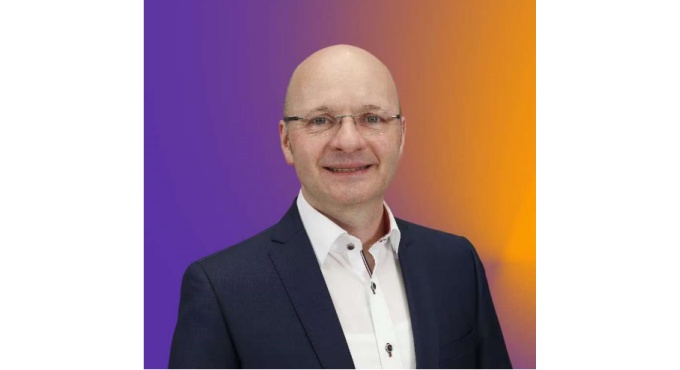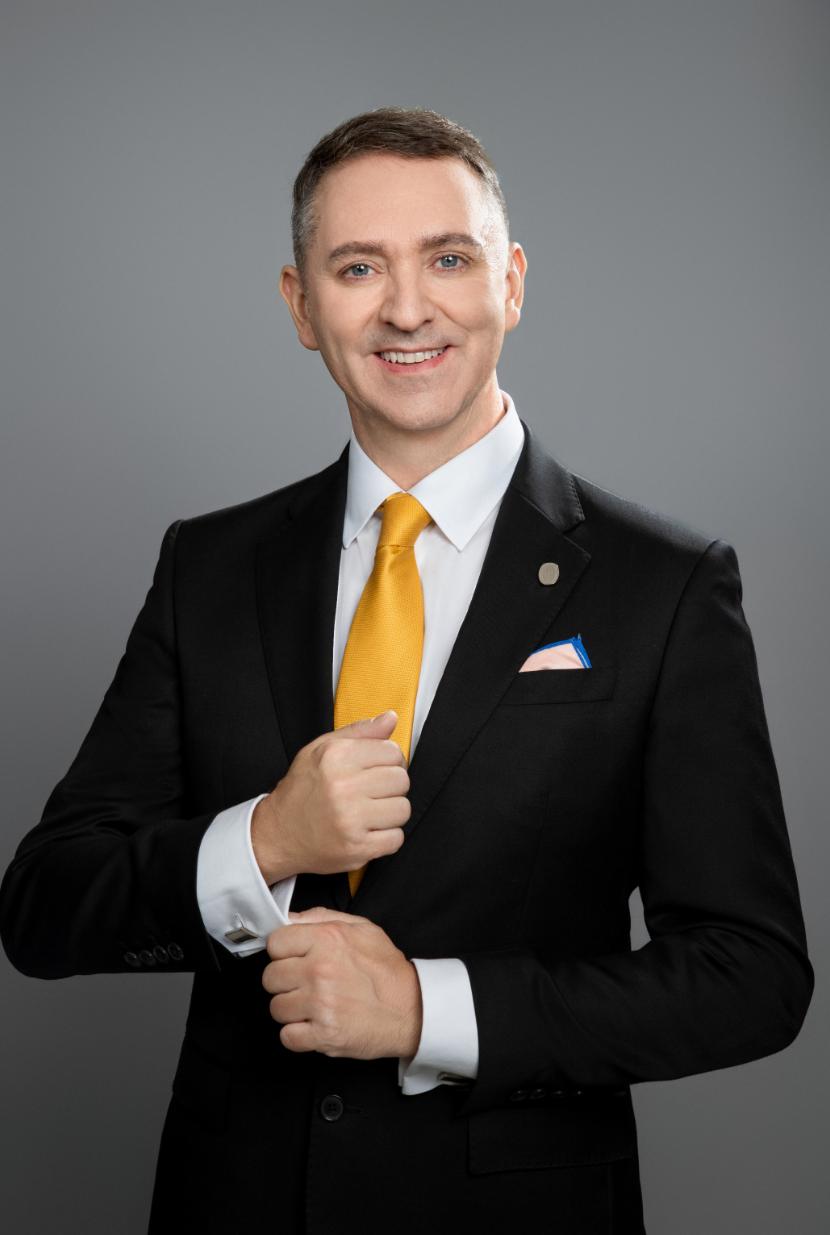Carla Chamorro is currently training to become a RightShip Inspection Ship Questionnaire (RISQ) Inspector. With big changes being made on the way RightShip conduct inspections, it's a challenging and exciting time to be on the team.
We consider how diverse hiring policies – particularly those encouraging more women to develop careers within the industry – allow different viewpoints and contrasting perspectives to surface, at a time when maritime, like many other sectors, faces steep recruitment challenges.
We consider how diverse hiring policies – particularly those encouraging more women to develop careers within the industry – allow different viewpoints and contrasting perspectives to surface, at a time when maritime, like many other sectors, faces steep recruitment challenges.
How did you start working in the maritime industry – and what do you love most about it?
My father is a doctor who worked in the Port of Tarragona, Spain, attending ill and injured seafarers. Their gratitude towards him was impressed on me, particularly as it was also how my parents met – the sea has always been part of my life.
I have a real love of being on board. I don't take it lightly that when I am there, I am inspecting someone's home. The vessel is like a neighbourhood. You take care of it, you keep it safe, secure and well-equipped – and many people do this with pride.
I have a real love of being on board. I don't take it lightly that when I am there, I am inspecting someone's home. The vessel is like a neighbourhood. You take care of it, you keep it safe, secure and well-equipped – and many people do this with pride.
Tell us what's required of a RISQ Inspector?
It's not easy! You need to allow the time to study and use an online training system to learn about the full RISQ Questionnaire. You shadow inspections in person, as well as taking written and oral exams. The feeling when you pass is really satisfying.
In addition, to even apply to be a RISQ Inspector you need to have around 10 years of experience at sea, plus further qualifications. When you start out, you're like a pilot getting their ‘wings’ – they must have flying hours, we must have days at sea. I started with 370 consecutive days at sea, because I was so determined to qualify as a deck officer.
We inspect vessels when they reach 14 years of age, and we also look at those that have experienced a safety performance incident – this can be anything from an injury or death to flood or fire. This means we're normally looking at vessels that are old, or troubled in some way.
It's not easy! You need to allow the time to study and use an online training system to learn about the full RISQ Questionnaire. You shadow inspections in person, as well as taking written and oral exams. The feeling when you pass is really satisfying.
In addition, to even apply to be a RISQ Inspector you need to have around 10 years of experience at sea, plus further qualifications. When you start out, you're like a pilot getting their ‘wings’ – they must have flying hours, we must have days at sea. I started with 370 consecutive days at sea, because I was so determined to qualify as a deck officer.
We inspect vessels when they reach 14 years of age, and we also look at those that have experienced a safety performance incident – this can be anything from an injury or death to flood or fire. This means we're normally looking at vessels that are old, or troubled in some way.
Could you share a little about your career before RightShip?
I studied in Barcelona and Antwerp before my first contract with a ferry company in the Mediterranean. I worked 14-hour days every day, doing the navigational and cargo watches and the daily manoeuvre with the master up on the bridge. I'd top it off with two hours a day with a safety officer, learning firefighting and lifesaving appliances.
After finishing my cadetship, although I was fully qualified, it was hard to find a job. I'd get to interview and be told ‘we think you can do it, but we're not sure about putting you to sea with our crew’. This was obviously very frustrating – working at sea should be about professionalism, not what gender you are. To be told that I couldn't have a role because the rest of the crew could not be trusted was difficult.
My opportunity to prove myself as a woman came thanks to being hired to an all-female crew for a fleet of mega-yachts. I worked out of Dubai for five years and I learned so much. I had to be ‘ready to deploy’ in less than an hour – my luggage was always in the trunk of my car, ready to go. If the owners wanted to set sail at 3am, I had to be ready!
I was responsible for supporting the onshore staff with safety matters like third party inspections and completing safety certifications. I was between two seas, one of salt water and one of sand, until saying “Khalas, Dubai!” I swapped the role for cruise ship management, doing deck and safety compliance in Europe. Finally, with some excellent timing, given the start of the pandemic, I arrived at RightShip in February 2020.

Carla Chamorro and Captain Romina Perrone
The latest report from Baltic and International Maritime Council (BIMCO) / International Chamber of Shipping (ICS) notes that despite a 46% increase since 2015, women only make up just over 1% of the workforce. Do you have any ideas why this is?
Life at sea is traditionally seen as a male role. My mum and grandma tried to talk me out of it. My grandma told me how worrying it is to be the relative of a seafarer, always thinking about them at the mercy of the ocean, not always knowing if they are safe.
But it's not like that so much now. In 2016, the United Nations resolved that access to the internet should be considered a basic human right. It's not something that's questioned on land, but at sea it can feel even more important when you are separated from your loved ones. That familiar face on the phone can be all it takes to turn a bad day into a good one.
There's an expression – if you see it, you can be it – and I think that's important. Other women will see me doing a job I love and know they could do it too.
Life at sea is traditionally seen as a male role. My mum and grandma tried to talk me out of it. My grandma told me how worrying it is to be the relative of a seafarer, always thinking about them at the mercy of the ocean, not always knowing if they are safe.
But it's not like that so much now. In 2016, the United Nations resolved that access to the internet should be considered a basic human right. It's not something that's questioned on land, but at sea it can feel even more important when you are separated from your loved ones. That familiar face on the phone can be all it takes to turn a bad day into a good one.
There's an expression – if you see it, you can be it – and I think that's important. Other women will see me doing a job I love and know they could do it too.
Do you have any suggestions on how the maritime industry could make change happen to encourage more women?
I think that communication is key. For example, I once had a situation onboard a vessel where I was working as the Second Officer.
When you get aboard a vessel, you must set up a hierarchy and a common working language, as crews are often international. The professional guidelines that might seem obvious in an office situation are not always so at sea. Some male colleagues I came across had never seen a woman at sea before or worked alongside us. They'd never had to think about whether they should make rude jokes, wear a shirt, or say good morning.
I think it's so important – without being patronising – to lay out basic guidelines. On this vessel, it seemed like some of the crew were blanking me. I instantly assumed that I'd offended them in some way. I went to another crew member for advice, and they acted as a liaison between us.
It transpired that, as I was a woman the crew did not know well, they felt it was not respectful to speak to me without my express permission – as a sign of deference. It was such a mix up! We assured them that saying good morning to me was a positive, pleasant thing to do. But if I hadn't turned to that other crew member for advice, I might have spent my whole experience worrying and letting the situation fester. Good communication was, and remains, essential.
Finally, on International Day for Women in Maritime, would you say that RightShip's role is in encouraging equality and diversity?
If current recruitment strategies and offers don't change, it's predicted that, by 2026, the maritime industry will be short 26,000 employees. Life at sea has got to be made fair – and appealing – to a wider range of candidates, many of whom could quite comfortably remain sat behind their desks, at home.
Leading organisations need to be putting themselves out there, saying ‘look at us, we're confident that we are a good place to work’. From this starting point, a situation will follow where people who want to work in the maritime industry start to notice those examples of best practice and refuse to work anywhere else.
Across the maritime industry, both on and offshore, we can consider recruitment processes carefully, making sure not to use gendered language and working around possible roadblocks in people's careers – like returning to shore to have a family. How do we make it easier for people to return to sea, if they need to gain more experience to apply for certain roles?
These are all questions that I know RightShip is considering as part of its own Environmental, Social, Governance journey towards zero harm in the maritime industry.
Source: RightShip
The opinions expressed herein are the author's and not necessarily those of The Xinde Marine News.
Please Contact Us at:





